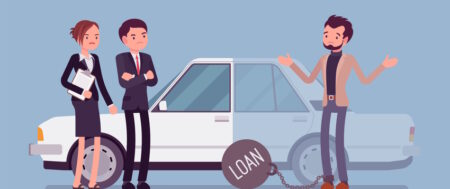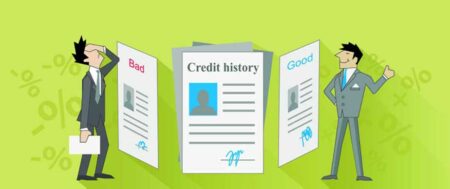Automobile repossession occurs when a lender takes back possession of a vehicle from the borrower after one or more missed payments. The lender may pick it up with the assistance of a towing company or through what is known as “voluntary surrender” of the vehicle.

At Econo Auto Sales, we work with you every step of the way, with reminder phone calls for deferred down payments and late payments so you can keep driving your vehicle.
Some people believe that car dealers – especially buy here pay here dealers – actually want to repossess your car so they can resell it and make more money. This is not true – at least for us. We want you to succeed and we make every effort to help you.
Automobile repossession is not a pleasurable experience for the buyer or seller of the vehicle, but it is common among many car owners who continually or consecutively miss loan payments. For buy here pay here dealerships, the car goes back into the possession of the dealership once a payment is missed, and the borrower has the opportunity to either purchase the vehicle or allow the lender to sell it and have the money go towards paying off what is owed by the initial borrower of the loan.
The following is an overview of how automobile repossession works and what to expect before, during and after the repossession process.
How repossession works
Automobile repossession involves the lender seizing the vehicle after the borrower misses one or more payments, and the repossession can take place on or off the property of the borrower. The following is everything to know about the repossession process.
Can a car be repossessed without notice?
Colorado allows the creditor/dealer/lender to repossess a vehicle if the borrower misses any payments or otherwise breaches the loan agreement. In other words, car repossession does not require the creditor of the vehicle (i.e. the dealer at a buy here pay here dealership), to notify the owner of the vehicle or seek a court order before taking the car back in their possession if the contract was not upheld and a payment, or multiple payments, was missed.
However, the repo can’t occur until the owner is in default for at least 10 days and a “right to cure” is sent. A “right to cure” gives the vehicle owner the opportunity to make up the missed payments and stop the repossession process.
Some states have restrictions on the process that a creditor can use to repossess the vehicle, such as not being allowed to use the threat of force or violate “breach of peace” laws. Most states, however, do not have many restrictions and some can even enter into garages to repossess the vehicle (but NOT in Colorado).
Are you notified before your car is repossessed?
Except for the notices and waiting periods mentioned above, the lender is not required to notify you about a pending repossession and many seldom do before coming to pick up the vehicle. There are various reasons why they do not provide notifications, such as to avoid a confrontation with the borrower or to prevent the borrower from hiding the car.
However, some lenders may send a notice or call in advance stating that the car will be repossessed, although they likely will not provide details on where and when the repossession will take place.
There are requirements to notify the borrower if the car is resold to someone else. Many states require the buyer to have the opportunity to purchase the vehicle, and they must receive a notice if the seller decides to sell it to someone else.
What to expect after repossession
After repossession occurs, the borrower will have several options available, which typically includes purchasing the vehicle outright, reinstatement to get the car back and continue paying off the loan and making payments to cover the remaining cost after it is sold to someone else.
What happens when you get your car repossessed?
- The lender may send a notice telling the borrower to pay right away if there are one or more missing payments, and the car will likely be repossessed soon after if the notice is ignored. Repossession can take place on and off the borrower’s property.
- Once the car is repossessed, the borrower is more than likely responsible for all fees for the repossession and for storage. The lender may offer the car back to the borrower by catching up on the payments or allowing them to pay it off all at once.
- If the borrower is unwilling or unable to do so, then the vehicle is often placed in an auction or resold.
Do you still have to pay if your car is repossessed?
Once repossession takes place, the car will likely go into auction or is resold. In many instances, the car will not sell for as much as what is owed by the borrower, and the borrower, rather than the lender, is responsible for the difference in price. This means the car owner will have to continue making monthly regular payments on the vehicle after repossession if the sale price is not greater than what is owed by the borrower.
In addition to covering the remaining cost of the vehicle, the borrower is also likely responsible for any and all repossession and storage costs the lender has accrued during the repossession process.
Can they garnish your wages for a repo?
If the sale price after repossession does not cover the total amount you owe, then you are responsible for the remaining cost. If you are unable or unwilling to make payments, then the lender can seek a court order to garnish your wages. This is one of the more extreme steps, and many lenders prefer not to take this step. However, it is sometimes necessary if the borrower refuses to make payments.
Perhaps a larger concern for you is that failure to make payments after a repossession can severely hurt your credit score, which makes it increasingly difficult to receive a loan in the future.
Can you go to jail for not paying a car loan?
You cannot go to jail for not paying a car loan. Failure to pay for a loan is considered a civil issue, which does not result in jail. However, the lender does have certain rights other than the threat of jail to receive payments for a car loan. They are most often allowed to contact you directly to notify the you that a payment is due or past due. If one or more payments are missed, then they have the authorization to repossess the vehicle.
If the lender is not able to cover the cost of what is owed through reselling of the vehicle, then you must cover the difference, and they may be able to get a court order to garnish wages if you are unwilling or unable to make the payments.
Getting a car back after repossession
Most borrowers have the opportunity to get the car back after repossession, although it is not always a viable or the best option to do so. Although it is possible to get your car back, it is helpful to understand how the process works and how to determine if doing so is the best option.
Can I get my car out of repossession?
Borrowers typically have the opportunity to get their car back after repossession, but it is not always easy. Depending on the lender, you may have to pay off the entire loan to receive the car back, which most people are unable to do all at once. Some buy here pay here lenders may only require you to catch up on all late payments and cover the cost of repossession and storage to receive the car back, although this is rare.
In some cases of reinstatement (giving the vehicle back to the borrower), the lender may renegotiate terms of the contract and offer a different payment plan.
Can you get your car back after a repo?
There are several options the borrower has after repossession, including ways to get the car back. The lender may offer you the option to get the car back by paying off the remaining of what is owed, which is often too much up front for the borrower to cover. In some rare instances, the lender is willing to reinstate the loan and allow you to get the car back and continue making payments after you catch up on the amount that is owed and cover all of the additional costs for repossession and storage.
If you are unwilling or unable to meet the reinstatement or payoff terms presented by the seller, you are obligated to cover the remaining cost — the difference between what is owed and the resale value of the vehicle.
How do you get a car back after repossession?
You have several options to get your car back if the lender repossess it for missed payments. The most common method is to negotiate with the lender, which for a buy here pay here lot is the dealership itself. They may allow for reinstatement of the initial contract or the ability to negotiate a new payment plan. More commonly, the lender will only offer you the option to purchase the car outright after repossession.
There are other ways to get your car back, such as to bid on the car at the auction. If you win the auction, you will still be obligated to pay off the difference, if the car does not sell for as much as the amount that is owed.
How repossession affects credit score
Automobile repossession negatively affects credit score in most instances, and it most often stays on the borrowers credit for several years. While there is a grace period, any late payment that lasts more than a month can be considered late and start to impact credit score, which is why it is important to stay up to date on all payments.
How bad does a repo hurt your credit score?
A vehicle repossession can have a significant impact on your credit score. In some instances, repossession can drop your score as much as 100 points. Additionally, late payments and repossession of a vehicle due to missed payments can stay on your credit for up to seven years, making it more challenging to secure a new car loan in the future.
Of course, the severity of how much repossession hurts your credit score depends on various factors, including the number of payments missed, how consistent you remain in paying off the vehicle after repossession, etc.
How late can a car payment be before it affects your credit?
A late car payment will not affect your credit until at least 30 days after the due date. What many refer to as a “grace period,” creditors are not allowed by law to report late car payments until the 30 day period is reached. This means if the payment is made within a month of the due date, it will not negatively impact credit score.
With that said, lenders can repossess a vehicle as soon as one day after a car payment is missed without notifying the lender as to the time they plan to take back possession of the vehicle.
Buying a car after repossession
Although automobile repossession can negatively impact credit score, it does not hold the borrower back from purchasing a new vehicle. Of course, the easiest way to get a new vehicle after repossession is through purchasing it outright, but car loan opportunities are often available as well, especially from dealerships that offer their own financing.
Can I get a car loan after a repossession?
Car repossession certainly makes it more difficult to secure a new car loan. Not only can repossession affect your credit score, but it also shows up on the credit report and can make prospective lenders not feel comfortable providing the borrower with a loan. Although each situation is unique, most borrowers are in a better position to receive a car loan after a year or more has passed after repossession.
Due to a potentially damaged credit score and a repossession on the borrower’s record, the lender may limit the purchase amount of the borrower and require a higher interest rate.
Can you buy a car with a repo on your credit?
You can buy a car in cash with a repossession on your credit without any issues. For many who have a repossession on their credit score, struggle with lower credit scores and a more difficult time getting a loan for a new vehicle. If this is the case, then it might be best to save money and purchase a vehicle up front rather than through financing.
To purchase a new car with a repossession on your credit through financing and a loan, it is often much more difficult, especially through traditional dealerships that do not provide financing directly. The best financing option for those with a repossession on their credit is typically through a buy here pay here dealership, which is a car dealership that offers financing itself.
Voluntary repossession
Voluntary repossession, or voluntary surrender, is when the borrower gives a vehicle back to the dealership if they are unable to continue making payments. It is similar to a traditional automobile repossession, although it is often easier, more convenient and more affordable for the borrower.
What is a voluntary surrender of a vehicle?
A voluntary surrender of a vehicle is when the borrower gives up their vehicle to the dealership when they are unable to continue making payments. After a voluntary surrender, the dealership will sell the vehicle to someone else, and the purchase amount goes towards paying off the amount that is owed. If the sale price does not cover what is owed, which is often the case, the initial borrower will still be responsible for covering the remaining cost.
There are benefits to a voluntary surrender. Most notably, the borrower will not be responsible for repossession costs if they deliver the vehicle to the dealership voluntarily. It also allows the borrower to make necessary arrangements for transportation by avoiding an unexpected repossession.
How does a voluntary surrender affect your credit?
A voluntary surrender will negatively impact the borrower’s credit score. On the borrower’s credit report, it will reflect that they have a voluntary surrender, which is considered a loan default the same way as a repossession and will stay on the report for seven years. A voluntary surrender can reduce a credit score by as much as 100 points.
Additionally, the borrower will be responsible for the remaining cost if the dealership is unable to sell the vehicle for what is still owed on the vehicle. The remaining cost reflects on the credit report as an outstanding balance, which makes it more difficult to receive another loan until the total amount is paid off.
How long does a voluntary repossession stay on your credit report?
A voluntary repossession stays on your credit report for seven years. A voluntary surrender is similar to a traditional repossession as it relates to its affect on credit score. They are both considered default loans, which can negatively impact credit score up to a 100 point decrease and will stay for seven years.
A voluntary repossession does not mean the borrower is unable to purchase a car or receive a loan during the seven year period, but it can make it more difficult to secure another auto loan.
Car payments & grace periods
Borrowers have a grace period that allows them to avoid a negative impact to their credit score after a car payment is missed. It is important to become familiar with the grace period and know the risks of not paying within the allotted time if a payment is late or missed.
Is there a grace period for car payments?
A payment is considered late by many dealerships within ten days after the due date, but there is a grace period before car payments begin to affect your credit score. Borrowers have thirty days after the due date to make a car payment, but after the thirty days the payment is officially considered late and the creditor can report the missed payment, which can significantly hurt the borrower’s credit score.
With that said, some lenders do not have a grace period as it relates to repossession, and some may choose to take back possession within a week after a payment is missed.
Do grace periods affect credit?
Car payments that are made during the grace period do not affect credit. The grace period is within thirty days after the due date. For the first thirty days, the payment is considered late, but it will not reflect on the borrowers credit. After thirty days have passed, it is considered a missed payment, and the lender can report the missed payment, which can have a severe negative impact on the borrower’s credit score.
Is it possible to skip a car payment?
Most dealerships do not allow borrowers to skip a car payment. However, some may allow for a deferment in certain circumstances. A deferment is adding a loan payment to the end of the contract to allow the borrower to essentially skip the payment for the month, although they are still responsible for paying it at another time.
Borrowers who feel they may need to skip a car payment should instead consider paying it down faster if the dealership allows for advanced payments, or personally saving money to ensure they are covered in the event an emergency develops.
Can your car be repossessed if you miss one payment?
Dealerships have the authority to repossess your vehicle if you miss a single payment, although most do not repossess right away. If you miss a payment, it is, however, an urgent manner, especially with dealerships that offer financing directly(i.e. Buy here pay here dealerships).
Lenders do not have to notify the borrower before they repossess the vehicle, and it can be difficult to get the car back after repossession. Therefore, it is best to avoid missing a payment and pay it as soon as possible when late.
The bottom line
Automobile repossession is not a desirable experience for anyone involved, and it is best to avoid it at all costs by staying ahead on all payments and saving up a safety net in case a financial emergency occurs. Automobile repossession can negatively impact the borrower’s credit score and make it more difficult to secure future car payments.
While it is possible to get your car back after a repossession, it is not always easy, and the borrower will be responsible for the remaining cost if the resale of the vehicle does not cover what is owed. To learn more about automobile repossession and learn successful ways to avoid repossession becoming necessary, get in touch with us today.







